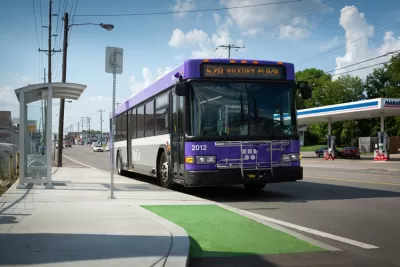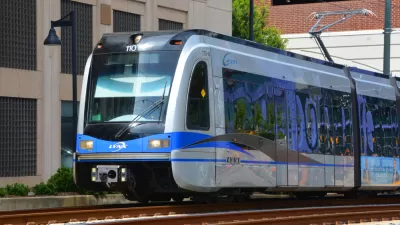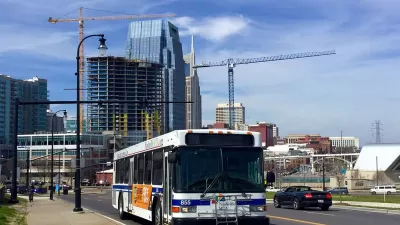The plan will hinge on voter approval of a half-cent sales tax increase on the November ballot.

Nashville Mayor Freddie O’Connell announced a $3.1 billion dollar plan to expand transit in the city. The proposed initiative, called “Choose How You Move,” would be paid for with a half-cent sales tax increase that will appear on the ballot in November, reports Cassandra Stephenson for the Nashville Tennessean.
The majority of the proposed improvements (nearly 60 percent) would come in the form of expanded and enhanced bus service. According to Stephenson, the local WeGo bus service would nearly double under the plan, including the creation of four new express bus routes, as well as updated routes and increased frequency throughout the city. The rest of the plan will add sidewalks, upgrade and add traffic signals, and build new transit centers, as well as create a microtransit pilot and purchase 26 acres of land adjacent to transit center locations to use for things like housing and parks.
The proposed plan comes almost six years after Nashville voters firmly rejected a referendum for a $5.4 billion transit plan and a rebranding of Nashville MTA as WeGo. If voters approve the ballot measure in November, the plan will cost the average Nashville family about $70 more per year in sales tax and take 15 years to complete. The tax increase will cover around 40 percent of the plan’s total cost, writes Stephenson, with the remainder coming from fares, bonds, and state and federal programs. Mayor O’Connell said at a press conference that having a dedicated source of transit funding will make Nashville more competitive for federal grants.
FULL STORY: Nashville's $3.1B transit plan: What's in it and how much it will cost taxpayers

Maui's Vacation Rental Debate Turns Ugly
Verbal attacks, misinformation campaigns and fistfights plague a high-stakes debate to convert thousands of vacation rentals into long-term housing.

Planetizen Federal Action Tracker
A weekly monitor of how Trump’s orders and actions are impacting planners and planning in America.

Chicago’s Ghost Rails
Just beneath the surface of the modern city lie the remnants of its expansive early 20th-century streetcar system.

Bend, Oregon Zoning Reforms Prioritize Small-Scale Housing
The city altered its zoning code to allow multi-family housing and eliminated parking mandates citywide.

Amtrak Cutting Jobs, Funding to High-Speed Rail
The agency plans to cut 10 percent of its workforce and has confirmed it will not fund new high-speed rail projects.

LA Denies Basic Services to Unhoused Residents
The city has repeatedly failed to respond to requests for trash pickup at encampment sites, and eliminated a program that provided mobile showers and toilets.
Urban Design for Planners 1: Software Tools
This six-course series explores essential urban design concepts using open source software and equips planners with the tools they need to participate fully in the urban design process.
Planning for Universal Design
Learn the tools for implementing Universal Design in planning regulations.
planning NEXT
Appalachian Highlands Housing Partners
Mpact (founded as Rail~Volution)
City of Camden Redevelopment Agency
City of Astoria
City of Portland
City of Laramie





























